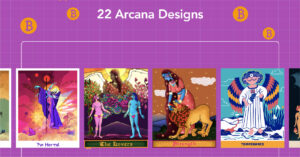Life in the city has gotten increasingly comfortable for urban dwellers, thanks to technology. What though of those in India’s villages?
Tanmay Sethi, Yogesh Kumar Gupta, Mohit Dadhich – all alumni of IIT Jodhpur, were always keen on exploring the agricultural sector in an effort to improve the lifestyles of rural folks, and this led them to start Nebulaa in Hyderabad in 2016.
The startup aims to solve the problem of quality testing of agricultural produce, a process that was often very slow, erroneous and manual in nature, and which until 2016, was one of the biggest hindrances in enabling e-trade of agri produce.
Founders of Nebulaa
“Across the globe, the testing of agricultural produce is carried out by trained chemists, taking about 30-45 minutes per test. This process is prone to human subjectivity, and is bound to give erroneous results,” says Tanmay.
Finding a solution to this challenge had all three engineers put their heads together to develop a patented product called MATT. It uses AI and Image Processing to do quality analysis in just a minute, but a lot more accurately.
“Using MATT, we are creating a secured digital testing network through which the results of a test can be verified by a buyer sitting in a faraway remote place. This way, we enable both buyers and sellers (farmers) to assess the quality of produce based on scientific standards, and then make a trade decision,” says Tanmay.
He explains that MATT offers a unique proposition of an artificial intelligence-based backend. The product’s algorithm tries to mimic how the human brain identifies.
“On average, every computation of MATT covers roughly a million parameters that enable it to cover any sort of physical defect on grain. MATT can perform any visual analysis that can be done by a human expert,” adds Tanmay.
Why a tech product?
The product has been designed to analyse each grain from multiple sides using multiple cameras. Thus, it can detect any defect present on any side of the grain. Tanmay says conventional testing and other machines, unlike MATT, rely on the analysis of only one side.
MATT also helps the user in testing all the required parameters. It can detect any sort of physical defect ranging from colour, size, shape, texture, pattern etc. It can also provide uniformity of sample on these parameters.
“Using our AI technique, we have also been able to do varietal analysis for grains, which is a very critical parameter for buyers. Along with this, MATT gives a comprehensive report covering count and weight contribution of various defects. This also comprises a verifiable report which tags every individual defect that ensures that all stakeholders can verify the results,” says Tanmay.
Tanmay says the best part about the entire technology is that it has been optimised to run offline on a normal system.
“This is a must to ensure that we can run in the remotest environment of the country where even to this day internet is a challenge. The hardware has also been designed in such a way that it can withstand the weather conditions across the nation ranging from near zero degree to the scorching temperature of Rajasthan,” explains Tanmay.
Challenges
The biggest challenge the trio faced was developing the technology to scale a solution like this. They found that a lot of institutions from startups to academic institutions to MNCs have tried to solve this problem, but they haven’t been able to solve a couple of technical challenges.
“With our multidisciplinary team we have been able to visualise the product, and actually implement it for a country like India,” says Tanmay.
When the team had begun exploring the idea of digitising agriculture, they realised that for any digital trade, they had to make sure that the buyer can procure without requiring to be physically present in the trade location.
“We also explored the current models of procurement by big businesses, where the testing is done by labs, but realised that it is not practical for small farmers as the numbers are humongous. The challenge is also in that during the peak season, hundreds of farmers bring their produce various villages, there is so much diversity,” says Tanmay.
It is keeping this in mind that the trio started exploring a technical solution to assess the quality of agri produce. Tanmay says it was very surprising to note that even developed countries were using manual assessment for quality testing.
Nebulaa
Revenue and operations
The team started commercialisation of MATT in end 2018. Since then, they have grown from one machine to 250 plus deployments across the country.
“We recently did our first export. We have also commercialised our testing license to a large processing equipment manufacturer MNC for real time testing in their machines. This is a new dimension of our product’s utility,” says Tanmay. He adds that they completed the last financial year with a healthy Rs 25 crore.
Currently, to position the device in the market, they have two revenue models. The first is to provide devices as a product for labs, and second, to industries with huge volumes. They also have the option of services, where they provide quality testing services to the buyer at the time of purchase using MATT.
Tanmay adds their client base spreads across industries ranging from seed company, feed company, FMCG, millers, exporters, processors, and retail chains.
“We have also been a key quality testing service provider for the government across APMCs (mandi), and civil supplies. Our cost is generally a factor of customisation. We understand that each client has their own testing requirements that come from their own experience of industry. So, we keep this as their proprietary information while developing, and do custom development for them. This also has been one of our key offerings for them,” says Tanmay.
Market and future
An EY report states that the agritech market has the potential to reach $24 billion by 2025. According to the report, agritech companies had raised $532 million until April 2020. There are several startups in the same space like – DeHaat, Gramophone, Tartan Sense, Intello Labs, SenseGras, etc.
Nebulaa has raised seed funding from Hyderabad-based agri focused organisation- Swasa Agro in 2017.
Speaking about what sets them apart, Tanmay says the company has been largely focused on the physical testing of agricultural produce. “We have developed our product considering the fact that our results should yield trade worth lakhs of rupees.”
“In this regard, where our competitors have tried to provide a handheld mobile-based solution, we have focused on making an industrial grade machine that can give accurate and reliable results. We have stuck to our requirements that our results have to be able to generate trust among the stakeholders to make a trade decision,” says Tanmay.
He adds that their vision is to evolve the industry so as to emphasise on quality-based trade at all levels. Once this vision is achieved across the primary market, Tanmay says they can expand the same to the final consumer as well.
The key idea is to expand across the primary markets – mandis, FMCGs, etc. Once the team has the requirement for multiple industries, they can match a farmer or trader to the respective industry based on their produce quality.
“This way Nebulaa can create a mechanism where we derive the best utility of any produce,” he says
“We also intend to scale our operation beyond India, as quality testing across the globe is done manually and MATT can be customised for international requirements as well. We have done our first export this year and are in the process of getting CE and FDA certification for our product,” says Tanmay.








![Read more about the article [Jobs Roundup] These openings may help you land a role at subscription-management unicorn Chargebee](https://blog.digitalsevaa.com/wp-content/uploads/2022/02/chargebee2-1643778264913-300x150.png)
